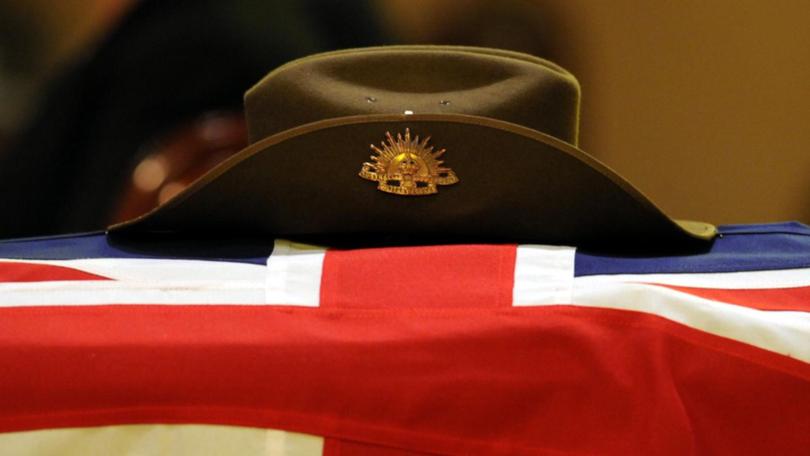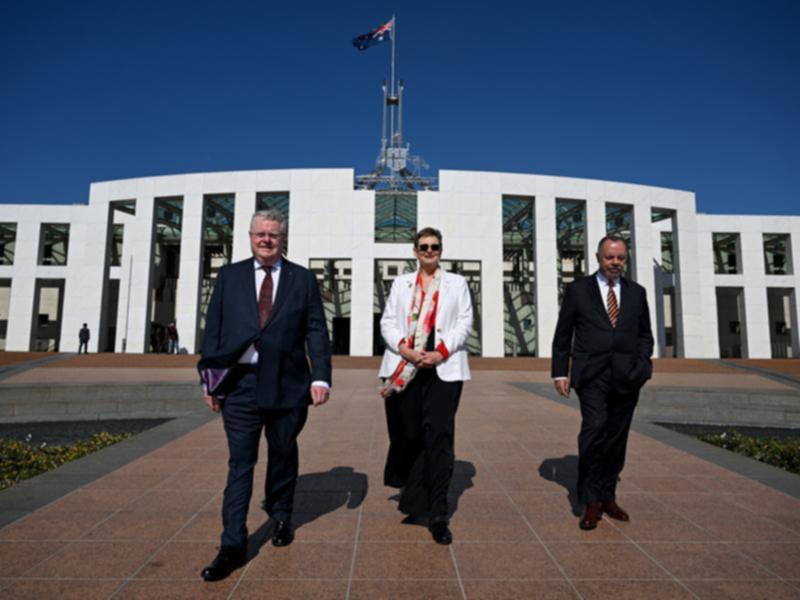Royal Commission into Defence and Veteran Suicide report calls for sweeping reform amid lack of veteran trust
The Royal Commission into Defence and Veteran Suicide final report has blasted a ‘failure of leadership’ and flagged sweeping changes to help restore trust in the ADF.

The Royal Commission into Defence and Veteran Suicide final report has blasted a “failure of leadership” and flagged sweeping changes to help restore trust in the Australian Defence Force.
Veterans need a new agency they can trust to help them transition from military to civilian life and the ADF must prioritise the health and wellbeing of all its members in sweeping cultural change.
The report also says it is possible to reduce suicide rates but it will require political will, bipartisan commitment and a concerted push from within the ADF.
Sign up to The Nightly's newsletters.
Get the first look at the digital newspaper, curated daily stories and breaking headlines delivered to your inbox.
By continuing you agree to our Terms and Privacy Policy.The seven-volume, 3100-page report handed down on Monday makes 122 recommendations in five priority areas: prevent harm, intervene early, improve communication, coordination and collaboration, build capability and capacity, and strengthen oversight and accountability.
Royal Commission chair Nick Kaldas said the problems uncovered were not new but they were clear, and he hoped the work of the past three years now made them undeniable.
He urged the Government and Parliament to act as soon as possible — not turn a blind eye as happened in the past.
“It should not be a political issue, uniting to help and support our veterans and our serving members,” he said.
“None of the problems we’ve uncovered are actually new. They’ve simply been neglected.
“We feel that unless there is an entity with enough power and resources to tackle the problems, they’re simply going to persist. You can’t keep doing the same thing over and over again and expect the result to come out different.”
The royal commission recommended the Government establish a new agency to focus on veteran wellbeing, particularly during the two years after they transition out of the ADF.
This new organisation could come under the Department of Veterans’ Affairs administratively but must be seen as a distinct entity to rebuild trust with the community.
It should play a key role in supporting veterans to transition from military to civilian life, help them navigate the system and connect them to well-being support.
There are also a range of recommendations for cultural change within the ADF.
The royal commission found that suicide rates for serving Defence personnel and veterans were significantly higher than for the wider population, and even more so for women than men.
The reasons are complex and multifactor, including that some characteristics that are protective while people are serving in the military become risk factors once they leave, such as stoicism and extreme self-reliance, and the capacity to suppress or compartmentalise emotions.

Poor communications between agencies meant some services were duplicated while there were gaps in other areas.
“Numerous barriers prevent serving and ex-serving ADF members from accessing quality care and support that could reduce the severity of physical and mental health conditions, and the likelihood of poor wellbeing outcomes arising in the longer-term,” it said.
The Government is now working through the recommendations to decide how it will respond.
Prime Minister Anthony Albanese said royal commissions had the weight and status that would drive change into the future.
“(Royal commissions can) make our nation face up to our collective failures to not do better, but to demand that we do better in the future,” he said.
He pledged to work across Parliament to step up for veterans.
Opposition Leader Peter Dutton also promised to help work to improve the system.
“Defence has let people down, the Department of Veterans’ Affairs has let people down, and both sides of politics have let these diggers down as well,” he said.
The recommendations also include reducing stigma and removing structural and cultural barriers to seeking help for physical and mental health, improved support and responses for victims of sexual misconduct including mandatory training for all leaders, and offering better support to families.
Postings should involve less frequent relocations while ADF members must be given time to “decompress rest and integrate” after deployments, especially those involving high-risk experiences.
The Inspector General of the ADF should be someone who had no military service and should be given greater independence, including the power to examine all deaths of serving members unless suicide can be definitively ruled out.
The royal commission heard from nearly 900 people in private sessions, a further 350 people in public hearings and received more than 5800 written submissions.
Mr Kaldas and commissioners Peggy Brown and James Douglas KC also made 26 visits to military bases to hear from current serving personnel, and travelled to the US, Canada, the UK and New Zealand to speak with Five Eyes partners.
Lifeline 13 11 14 or text 0477 13 11 14
Open Arms 1800 011 046

